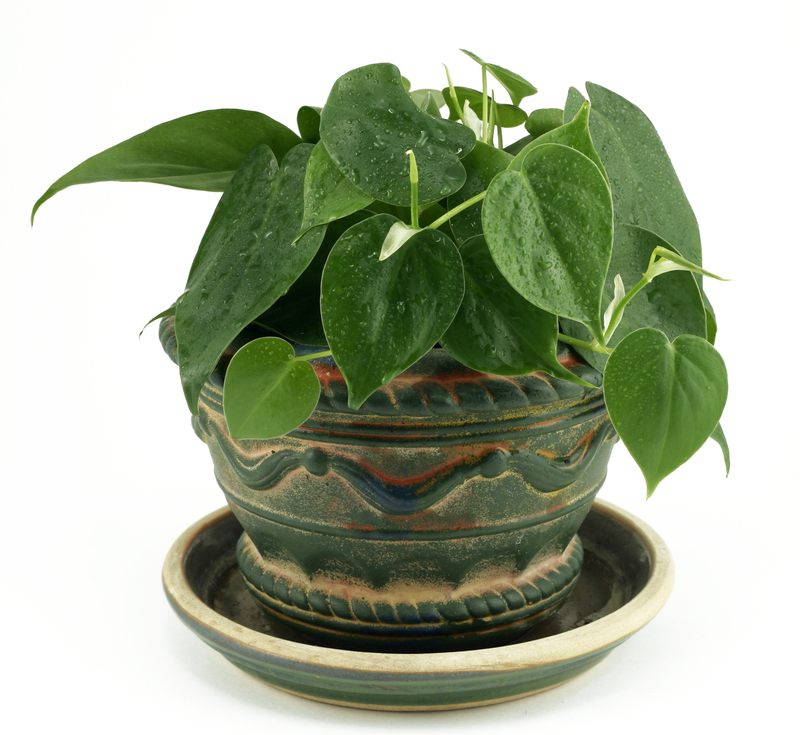Essential Tips for Winterizing Your Garden Plants
Posted on 24/06/2025
As the vibrant colors of autumn fade and the chill of winter approaches, winterizing your garden plants becomes an essential task for every gardener. Taking the right measures ensures your plants survive the freezing months and emerge healthy come springtime. Whether you're a seasoned gardener or a beginner, preparing your garden for winter safeguards your investment and preserves the beauty of your landscape.
Why Is Winterizing Your Garden Plants Important?
Freezing temperatures, harsh winds, and fluctuating conditions put immense stress on unprotected plants. Winter plant protection not only helps them withstand the elements but also encourages vigorous growth when warmth returns. Without proper winterization, plants can suffer from dehydration, root damage, and even death. The following winter gardening tips will help you plan and prepare effectively.

When to Start Winterizing Your Garden
Timing is crucial. It's best to start gently preparing your garden plants once nighttime temperatures start dropping consistently but before the first hard frost. Typically, this falls between late autumn and the onset of winter in most regions. Refer to your local frost calendar and keep an eye on weather forecasts for optimal timing.
Assessing Your Garden Before Winter Arrives
Before taking action, thoroughly assess your garden. Check the health of your plants, identify vulnerable species, and note areas that may require special attention. Some questions to help your assessment:
- Which plants are hardy and which are tender?
- Are there perennials, shrubs, or small trees especially prone to winter damage?
- What microclimates exist in your garden (shadier, wetter, or sunnier spots)?
Identify Delicate Plants
Plants like geraniums, begonias, and tropicals require more extensive winter care than native perennials. Make a list, so you don't overlook any sensitive plantings.
How to Winterize Your Garden Plants: Step-By-Step
Guarding your garden through winter involves a series of tasks. Follow these essential steps to winterproof your garden plants.
1. Clean Up and Prune
- Remove dead foliage and plant debris. This helps prevent the spread of pests and diseases.
- Prune away dead or diseased branches to reduce spots where ice can accumulate and cause breakage.
- Avoid heavy pruning, as it can stimulate new growth that's sensitive to frost.
2. Mulch for Warmth and Moisture Retention
Adding a thick layer of organic mulch is one of the most effective ways of winterizing your plants:
- Apply mulch such as straw, bark chips, or shredded leaves around the base of plants.
- This insulates roots, moderates soil temperature, and retains essential moisture during freezes.
- Be sure not to pile mulch directly against stems to prevent rot.
3. Protect Tender Plants
- Dig up non-hardy bulbs, tubers, and corms like dahlias, gladioli, and cannas. Store them in a dry, frost-free place.
- For delicate perennials and young shrubs, use plant covers, cloches, or horticultural fleece during the coldest periods.
- Bring potted plants indoors or into a greenhouse if possible.
4. Water Wisely
- Water well before the ground freezes so plants are not struggling with dehydration.
- Avoid watering once frosts begin, as saturated soil can freeze and damage roots.
5. Shield Against Wind and Snow
- Install windbreaks such as fences, burlap screens, or dense hedges to protect from drying winds.
- For upright shrubs and smaller trees, consider tying branches loosely together to prevent breakage from snow load.
6. Care for Evergreens
- Evergreen plants continue to lose water through their leaves year-round. Mulching around the base helps retain moisture.
- In exposed locations, use anti-desiccant sprays or burlap wraps to prevent winter burn.
Special Considerations for Different Plant Types
Winterizing Perennials
Most perennials are hardy, but tender or recently planted ones appreciate extra protection. Cut back dead stems after the first hard frost, add mulch, and consider marking their locations to avoid disturbance during spring clean-up.
Winter Garden Care for Shrubs and Trees
- Young trees are vulnerable to splits from rapid temperature changes. Use tree wraps or guards to shield trunks, especially for fruit trees.
- Prune minimally, focusing only on damaged or diseased wood.
Winterizing Container Plants
- Move pots to sheltered spots beside buildings or into garages.
- Cluster pots together and wrap in bubble wrap or burlap for insulation.
- Raise containers off ground to prevent waterlogging and freezing.
Protecting Bulbs and Tubers
- After the foliage dies down, gently lift and dry bulbs, then store in cool, dark places.
- Hardy bulbs can be left in the ground, simply cover with a thick mulch layer.
Soil Preparation and Garden Maintenance
Healthy soil is the backbone of winter survival. Properly winterized soil leads to healthier spring growth. Here are some tips:
- Test and amend soil in autumn. Add compost or rotted manure to replenish nutrients.
- Cover vegetable garden beds with straw or winter cover crops such as rye or clover to fix nitrogen and prevent erosion.
- Remove all weeds to eliminate hiding spots for pests.
Dealing with Garden Pests in Winter
- Remove fallen fruit and plant debris to prevent attracting overwintering pests.
- Inspect for insect eggs or larvae and dispose of accordingly.
- Consider using natural predators or organic deterrents for persistent issues.
Useful Tools and Materials for Winterizing Garden Plants
- Pruning shears and loppers
- Mulch (straw, bark, leaves)
- Frost blankets, horticultural fleece, or reusable plant covers
- Burlap and tree wraps
- Labels or markers for perennials and bulbs
- Garden gloves, compost, and watering can
Expert Tips and Mistakes to Avoid
- Don't over-fertilize: High nitrogen levels can stimulate late growth that's likely to be killed by frost.
- Avoid plastic covering directly on plants, as this traps moisture and leads to rot.
- Don't cut back everything: Some perennials (like ornamental grasses) provide winter interest and shelter for beneficial insects and birds.
- Monitor weather trends: Be ready to adjust your protection as needed if early thaws or late cold snaps occur.
Winterizing Your Vegetable Garden
Vegetable gardens require their own set of strategies for optimal overwintering:
- Harvest all mature veggies before the first hard frost.
- Remove finished annual crops and compost the remains (unless diseased).
- Plant winter-hardy vegetables like kale, spinach, or overwintering onions under cloches or cold frames.
- Apply mulch to exposed soil beds to curb erosion and weeds.

FAQ: Winter Plant Protection
How do I know if my plants need winter protection?
Check your plant's hardiness zone and compare it to your local conditions. Non-native, tropical, or recently planted species almost always need extra protection.
What is the best mulch for winterizing garden plants?
Organic mulches such as straw, shredded leaves, or wood chips offer insulation and improve soil quality as they break down.
Should I fertilize plants in autumn before winter?
It's best to use low-nitrogen, slow-release fertilizers early in autumn, if at all. Avoid high doses of fertilizer late in the season.
How should I care for potted plants during winter?
Move containers to protected spots, insulate them, and reduce watering once growth slows down. Monitor for frost damage and adjust your care as needed.
How to protect new plantings?
Young or freshly planted specimens are particularly vulnerable. Mulch heavily, consider using temporary covers, and water well before freeze-up.
Conclusion: Enjoy a Beautiful, Healthy Garden Next Spring
Successfully winterizing your garden plants is essential to ensuring their survival and thriving once warmer days return. By assessing your garden, applying reliable methods such as mulching and proper pruning, and customizing your care to different plant types, you'll preserve the hard work you've put in over the growing season. Remember, proactive winter care now means lush, vibrant growth and stunning blooms in the months to come.
Be diligent, observe your garden's unique needs, and enjoy the peace of mind that comes with thorough plant protection. For best results, revisit this winter garden care guide each fall and adapt its essential tips to your own evolving landscape.
Ready your garden for winter and look forward to a flourishing spring!
Latest Posts
Discover 5 Budget-Friendly Low Maintenance Garden Ideas
Master Your Green Thumb with These 9 Gardening Tips for Beginners
Design a Zen Garden for Tranquility and Peace in Your Outdoor Space

